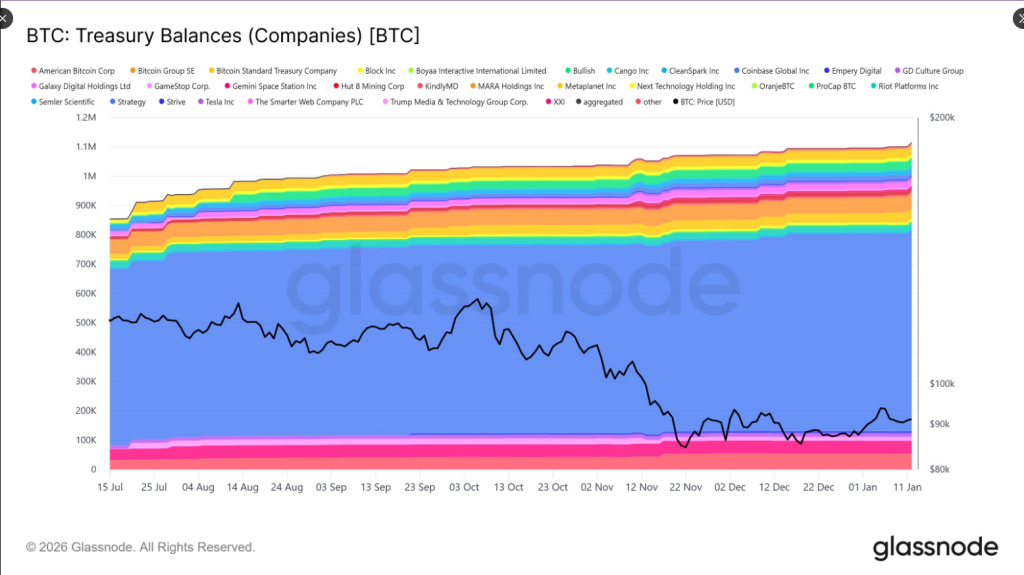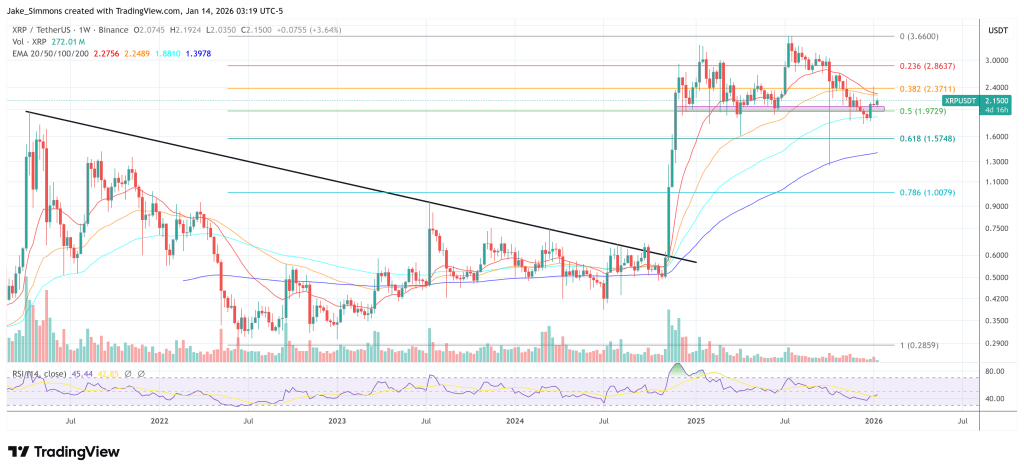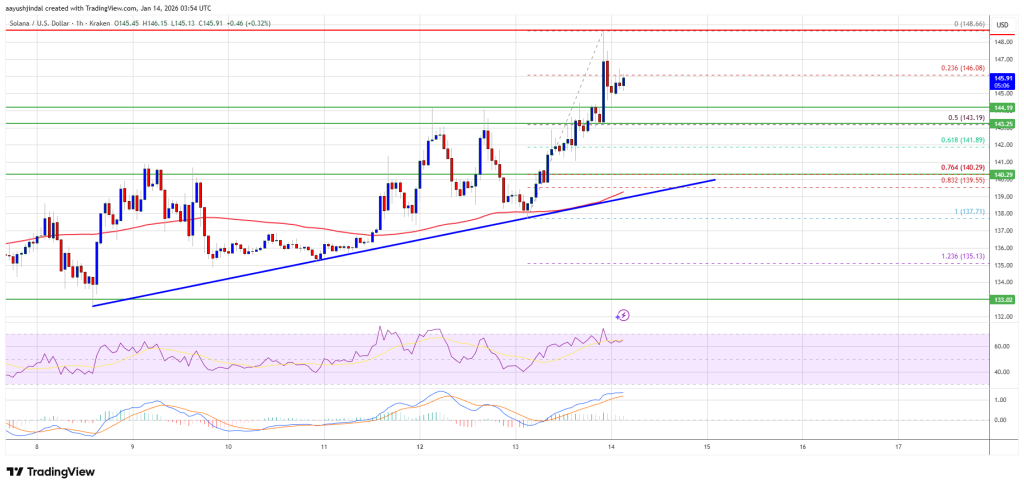
Introduction to Blockchain Technology: A Quick Guide
We can start with the historical backdrop of blockchain. The fundamental objective of making this kind of network was to send information between two gatherings without the data or the information being hacked, altered, or deleted. Blockchain technology is a straightforward and profoundly secure network appropriate for exchanges, delicate data sharing, and different tasks requiring well-being and tact.
The thought traces all the way back to the ’90s. Yet, the blockchain was first introduced by Satoshi Nakamoto, the pseudonym used by the creator himself, and it was unequivocally identified with Bitcoin (BTC). This way, the money he made could be secretly moved by any individual who approached code to a computerized wallet. Simultaneously, all exchanges made with Bitcoin are transparent, implying everybody can perceive what’s going on in its blockchain. Transparency and anonymity are not barring one another, as exchanges can be seen. However, we don’t know who did them, except if we know their hash ID – an extended grouping of numbers and letters.
Bitcoin was the pioneer regarding blockchain innovation, yet that doesn’t mean its lone object is to send and get crypto cash. We should perceive how blockchain works and why it tends to be valuable for various businesses covering a wide range of industries. Of course, the sky is the limit for it.
What is Blockchain?
The expression “blockchain” comes from two associated words that essentially depict how it functions – block and chain.
Each “block” is a piece of information, a record that should be handled with cryptography. This block comprises an exchange or transaction information, a timestamp, and the previous block’s hash. It’s the principal component of each blockchain. Furthermore, the “chain” is the network of computers that interact and process these blocks. The records are not put away on one central server. However, they are sent through a shared network. Each machine associated with cryptographic registering of the blocks is a part of an appropriated record or a distributed ledger that continuously copies the exchanges between blocks.
All blockchains can be utilized to process transactions with the distributed ledger technology. They are completely overseen in a distributed network that has no mediators – the entire data is sent from one network to the other.
After breaking this broad definition into tiny pieces, it will be more obvious to understand the overall blockchain innovation.
Distributed Ledger Technology
Distributed ledger technology is based on a lot of computerized information that is copied, duplicated, synchronized, and divided among every one of the individuals that are spread across numerous areas. Ledger technology is decentralized, which means it doesn’t store information on one worker, and furthermore – it doesn’t have one administrator that controls and oversees it.
Peer-to-Peer Network
To make the distributed ledger work appropriately, we need a network of computers that share all tasks needed to process and manage blockchain transactions. In the blockchain, peers make their computing power accessible to a wide range of various individuals. Thus, the administrator isn’t needed, and the transactions can be handled rapidly. Every individual who chooses to turn into a peer can download a “copy of the blockchain” to begin handling transactions. Then, at that point, it turns into a part of the network, and peers working in a blockchain network are called miners.
Cryptography
The entire blockchain advancements depend on cryptography implies all aspects of the transaction that is prepared in blocks are secure and inaccessible to be seen by third parties. That is the manner by which each cryptocurrency works – when we send amounts between the sender and beneficiary, nobody knows what their identity is. There is no agent like a bank or any other monetary organization included; only the network of peers that just permit the transactions are involved. On account of encryption, the activity can’t be altered, no fees are charged, and the transactions are instant. To be certain, the cash is sent off to the suitable individual; each gathering utilizes a computerized signature, which is a type of code that proves their identity and is required for verification.
Cryptocurrency
Utilizing advanced digital currency like Bitcoin or extremely famous Ethereum (ETH) isn’t that odd. There are applications and virtual trades that permit users to purchase and sell the currency at whatever point they need to. Their services likewise include exchanging them with real currencies like USD or EUR. A few users utilize digital currencies to bring in cash by theorizing – the same way as they would at the real stock market. Yet, they can likewise be utilized to pay online and disconnected with a distinctive sort of installment terminal.
Bitcoin blockchain was the primary working blockchain network out there; however, blockchain isn’t about cryptocurrencies or any other digital currency transactions. It has countless uses.
What are the three primary features of blockchain innovation?
Blockchain technology is not limited to these three principle mainstays of blockchain innovation. These entireties are appropriate for blockchain networks, so we could say some multiple functions or rules depict each blockchain. To track down the three most significant columns, we should take a gander at the blockchain from numerous perspectives, remembering the advantages for each blockchain user. So what are the specific characteristics that recognize blockchain innovation from other digital transaction arrangements?
Decentralization
Another aspect that is regularly referenced as one of the essential ones to make blockchain innovation is how it is. Since loads of individuals inquire: who controls the blockchain? What’s more, the appropriate response is no one. As we referenced above, a few users process transactions yet do not influence them. They can solve mathematical problems to verify, send them to the final destination. But since safety implies, they can’t add blocks, change them, or erase them. To do that, one individual or a group of individuals would need to oversee over a portion of the network – and that is practically unthinkable.
Because of decentralization, no institution, government, or association can perceive how blockchain users are using and moving their cash, information, or other data they send through it.
Security
That is unquestionably perhaps the main thing with regards to the online revolution. Blockchain networks can ensure a significant level of transaction security with their advancements in technology. One of the captivating techniques for confirmation is the way that most of the network needs to concur before any new change is entered.
The entirety of the blocks need to comprise similar segments to be permitted into the blockchain – in case they are not, they will be declined. Most of the peers in the network need to process it and agree a mediator didn’t alter it. Then, at that point, we have a mechanism called the “proof of work” utilized by numerous blockchain networks. It depends on an algorithm, where each computer remembered for the framework needs to settle complicated mathematical calculations before it can even validate the transaction. A short time later, the peers receive the reward – in Bitcoin blockchain and not exclusively that is typically a specific amount of digital currency or tokens.
With these numerous security tools and techniques, the users can trust the setup of blockchain networks with their transactions. What’s more, that is a benefit for nearly everybody – individuals who don’t trust in banks, individuals who need safe cash moves, and individuals who need to trade cryptocurrency.
Adaptability
Distributed ledger technology permits the consistent development of blockchain so it can perform at an equivalent speed constantly. Because of individuals who join the network to confirm transactions, each functionality can work regardless of the number of requests are prepared at the same time.
Financial institutions can offer scalability just partly. In any case, blockchain can turn out to be increasingly more open without losing its ability. That is the reason, for instance, corporates can utilize Bitcoin in their business tasks like payments, data sharing, and considerably more.
Different features worth focusing on
The blockchain network enjoys more benefits than we ought to examine. These are:
Transparency
The blockchain technology use cases are transparent with all the security efforts. Obviously, you will not see names, locations, or other personal information. However, you can access the whole history of the network where you can see each transaction – hash quantities of the wallets and sums sent between them.
Distribution
Because of blockchain, the users acquire a space they can trust with their resources. That is the reason it is ideally suited for named “smart contracts”. It’s another usage of the blockchain network that is utilized increasingly more often these days. A smart contract is a combination of blockchain transactions and a traditional, written arrangement. Smart contracts are an inventive method of sending essential assets between parties – cash and agreements, shares, and different information that should be safely verified and gotten by a substantial individual or organization.
Immutability
Each transaction done inside a blockchain network is perpetual, which implies it can’t be switched. That is, for the most part, a direct result of the cryptographic properties – the blockchain networks encode each piece of information they get.
Blockchain and its Worthiness in Multiple Usecases
We clarified that blockchain is a trusted internet network for transaction validation, cryptocurrency trading, and smart contracts. In any case, all throughout the planet, blockchain is utilized for various businesses and for different purposes. Blockchain plays a crucial role in the current B2B and B2C exchanges. It helps organizations to build services and applications on the blockchain platform.
Interestingly, in addition to the public blockchain based on distributed ledger technology, a private blockchain is also known as a permissioned blockchain. In this case, the ledger is only open to specific user groups and is centralized. Bitcoin uses public blockchains, but there are also cryptocurrencies based on private blockchains. This type of blockchain can process transactions faster, but it is also vulnerable to hacker attacks.
A company does not have to use a private blockchain network. For example, Ethereum is a public blockchain, but it supports smart contracts, so its protocol is very suitable for commercial transactions. The choice of a private blockchain can be demonstrated by the fact that visible transactions in the ledger must be hidden. But it depends on the industry that particular company is operating in.
Speaking of the industry, here are a few practical examples of blockchain. What are the biggest advantages, and what are the significant benefits of blockchain networks? Let’s go!
Any business with a supply chain
For companies that want to improve efficiency and control the supply chain at every stage, blockchain is a great way to collect, share, and analyze data. All parties involved in the supply chain need to create a ledger. Each party can access information about the products they are trading, buying, or selling. This information is highly secure, accessible, and traceable at all times. Using blockchain in the supply chain is an ideal solution. Always understand what happened to the resources, how high the cost is, and where we can improve the process.
Businesses using smart contracts
As mentioned earlier, smart contracts are encrypted data that can be used for valuable information exchanged within the company. Blockchain with smart contracts can basically become a tool for organizing all files and records of a company. This is a productivity increase because the use of digital technology makes it easier for everyone to access and eliminates the problem of data loss or duplication and errors, often caused by humans. The automation of many processes is also a significant advantage and reason for using blockchain as a primary organization system within the company.
Industries that can benefit from smart contracts and the blockchain itself are almost all of them. Especially large companies and types of businesses that use large amounts of documents and information, such as all major supply chains, financial institutions, legal institutions, government organizations, and large international companies. Blockchain can also be a consideration for startups that eventually want to achieve maximum security for the operations and processes.
Another area that can prove that blockchain is the best choice is customer relationship management. With this technology, CRM can become more efficient, organized, and transparent by collecting high-quality and detailed data. With this tool, businesses can learn more about their customers, their needs and expectations, check their habits in detail, and formulate a clear strategy for their next business.
Payments and other B2C transactions
Paying with Bitcoin is not a new idea. It has been used for several years. Initially, people were afraid of using virtual currencies to buy things on the Internet, or worse, using them for daily necessities on payment terminals. Now an individual can use encryption to pay for groceries ordered, games you want to play, and many other tasks that can be performed. Of course, it is not available everywhere, but some companies offer their customers the option of using this payment method.
Considering blockchain-based payments – most of them are safe and fast, which is the most significant advantage, but there are more. Compared with traditional global transfers between two currencies, blockchain charges little or no fees at all. Users will not lose any money due to the conversion, as one can send the same currency between the two parties. The sender and receiver can be thousands of kilometers apart and complete the transaction in a few minutes at no additional cost.
Blockchain also supports the ion between companies and their customers: they are fast, safe, and reliable. For this reason, data exchange with blockchain companies will be more tolerable than in other situations. Blockchain can revolutionize the B2C field and B2B operations similarly.
Fundraising
Another way to use blockchain for fundraising is to use seed funding, but it is based on a whole new mechanism in the case of blockchain. Instead of simply transferring funds to a company of your choice to make your product or services, one can start doing it for tokens. It is an excellent way to avoid bank loans and other republic funding options.
So the method is sort of straightforward and transparent – the startup sells digital tokens to everybody who wants to invest in the company. The token provides many capitalist benefits, counting on the sort of tokens that were sold. Some tokens can give the investors a right to achieve a section of the revenue from the company they invested in. Others can provide them with a prospect to receive a promoted product or service in priority, before everyone else. Of course, these rights are often reassured because of smart contracts that oblige the startup to satisfy them. Tokens also can be listed on the exchange websites.
What are the advantages of blockchain?
As you’ll see, since blockchain is often utilized in numerous business operations in every industry, its value considering it in your strategy for the succeeding few years. Customers and business partners will certainly expect higher safety, a high level of transparency, and alternative benefits that blockchain can offer. Here are the foremost vital ones:
Fast operations
Blockchain increases the speed of transactions, and it is the best choice for every organization looking for fast operations. It offers real-time expertise, and with all alternative advantages, it can give the whole, complete system for payments, contracts, file sharing, storage, and analysis. If you’re doing business with international clients and partners, time enormously matters, and with blockchain, exchanging digital resources is often done with a blink of an eye.
Efficiency
Blockchain is a strong system that will automate and organize all collected information and provides access to each interested party. While not an intermediary, it will be an efficiency boost for businesses.
Transparency
All the records are unbroken in one place. Thus, we can follow through with our operations and see wherever they’re operating well and where they have improved. In this fashion, we can additionally forestall failures and potential frauds. It’s the most effective labor approach for everybody who needs to supply B2B relations to their customers.
Security
In times wherever many businesses digitize their internal and external processes, security has to be provided on so many levels. Payments, contracts, files, documents, and data will target hackers, thieves, or perhaps fraudulent competition.
Encryption, verification by accord from ledger members, and immutability of each block within the chain are what can guarantee every stakeholder you collaborate, that operating with you may invariably be safe.
Consumer insights
The fact that businesses are able to use blockchain is to gather consumers’ data; they can produce higher promoting strategies that will answer the goals and needs. Analyzing the B2C relationships will answer the questions: What is often done better? What’s operating simply fine?
You should go for Blockchain!
If it’s your first time hearing about blockchain, otherwise, you understand it already. It’s apparent that it is often a technology that will modify the planet of world businesses. Even though blockchain has been on the marketplace for a handful of years now, it’s still thought of as quite new technology. All the advantages we tend to mention during this article can be developed to supply sophisticated, solid solutions for all types of enterprises and startups.




